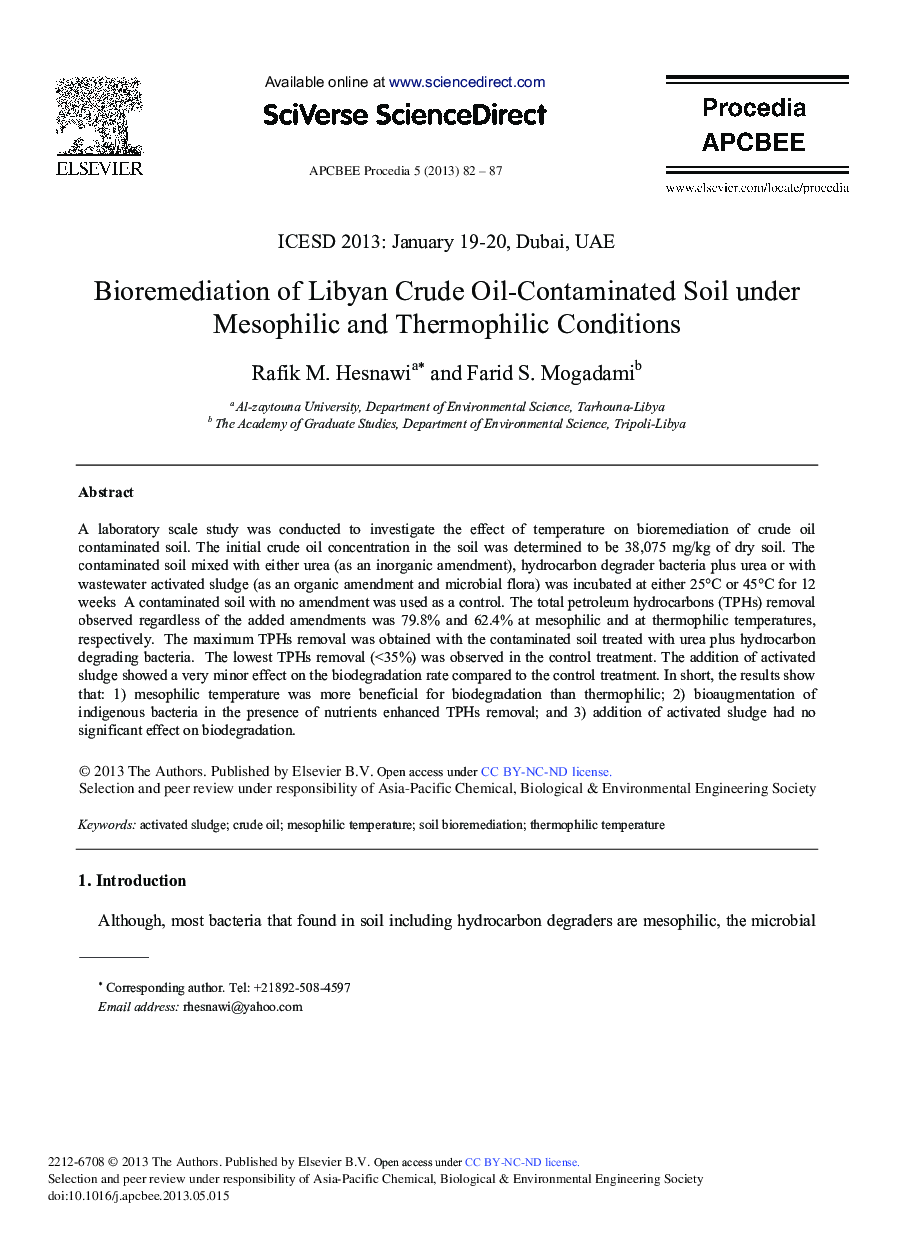| Article ID | Journal | Published Year | Pages | File Type |
|---|---|---|---|---|
| 676567 | APCBEE Procedia | 2013 | 6 Pages |
A laboratory scale study was conducted to investigate the effect of temperature on bioremediation of crude oil contaminated soil. The initial crude oil concentration in the soil was determined to be 38,075 mg/kg of dry soil. The contaminated soil mixed with either urea (as an inorganic amendment), hydrocarbon degrader bacteria plus urea or with wastewater activated sludge (as an organic amendment and microbial flora) was incubated at either 25 °C or 45 °C for 12 weeks A contaminated soil with no amendment was used as a control. The total petroleum hydrocarbons (TPHs) removal observed regardless of the added amendments was 79.8% and 62.4% at mesophilic and at thermophilic temperatures, respectively. The maximum TPHs removal was obtained with the contaminated soil treated with urea plus hydrocarbon degrading bacteria. The lowest TPHs removal (<35%) was observed in the control treatment. The addition of activated sludge showed a very minor effect on the biodegradation rate compared to the control treatment. In short, the results show that: 1) mesophilic temperature was more beneficial for biodegradation than thermophilic; 2) bioaugmentation of indigenous bacteria in the presence of nutrients enhanced TPHs removal; and 3) addition of activated sludge had no significant effect on biodegradation.
